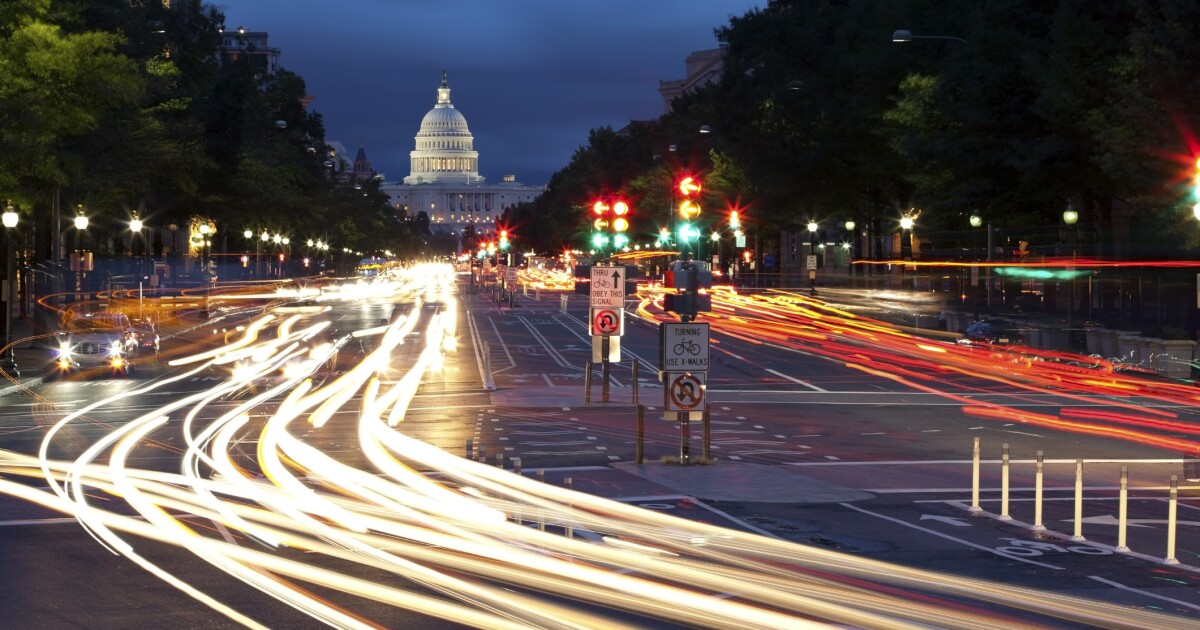

If Republicans succeed in winning a House majority in November, one of their areas of focus may be the capital city itself.
Many House Republicans have painted Washington, D.C., as a sort of left-wing boogeyman and petri dish for policies of which they disapprove, such as COVID-era vaccine and mask requirements. They also point to an increase in crime in the District of Columbia. Statistics from Washington’s Metropolitan Police Department show there have been 150 homicides as of Sept. 21 in 2022, compared to 154 total in 2021, leaving the city on pace for a significant increase.
But an increasing number of Democrats have embraced calls to grant the district statehood, arguing a city of more than 700,000 has a larger population than states such as Vermont or Wyoming and its residents should have representation in the House and the Senate. Democratic Del. Eleanor Holmes Norton is the district’s nonvoting congressional delegate.
The Constitution states that the seat of government would be a “District” of less than 10 square miles where Congress would “exercise exclusive legislation.” The Founding Fathers, including James Madison, believed that a neutral capital would prevent any one state from holding outsize authority over another if it were home to the federal government. But more recently, some have said that this arrangement disenfranchises residents of a major city, leaving them without the same representation as their neighbors in Maryland or Virginia.
Although Washington, D.C., was granted some autonomy by Congress in 1973 under the District of Columbia Home Rule Act, sparked in part by the civil rights movement of the 1960s, it does not have the same level of control over its governance as a state or even comparable major cities. Any legislation passed by the city is subject to review by Congress.
House Republican leadership, including House Minority Leader Kevin McCarthy (R-CA), have indicated they would move to increase congressional oversight over the district. McCarthy, who is on a path to become the next speaker if the GOP wins a House majority on Nov. 8 (the party needs to net five seats in the 435-member chamber), has cited public safety as one area in which more oversight is needed.
Congress’s most potent tool in affecting policies in Washington is through the annual spending process, in individual spending bills.
Perhaps the most aggressive proposal comes from Rep. Andrew Clyde (R-GA), who suggested repealing the 1973 law altogether.
Clyde told the Washington Examiner: “As our Founding Fathers outlined in Article I, section 8, clause 17 of the Constitution, it’s Congress’s duty to ‘exercise exclusive Legislation in all Cases whatsoever’ over our nation’s capital — making D.C. Home Rule, and other related legislation attempting to expand it, violate the intent of the Constitution.”
“Americans deserve a capital city that is safe, clean, and properly managed,” the congressman said. “Tackling skyrocketing crime, out-of-control homelessness, medical tyranny, widespread open hard drug use, poor maintenance, and unreliable public transportation are essential to getting D.C. back on track. Additionally, as a fierce defender of the Second Amendment, I’m also focused on ensuring D.C. residents and visitors can freely and fully exercise their unalienable Constitutional right to keep and bear arms.”
Norton has been a vocal critic of proposals scaling back home rule. She has backed calls to grant the district statehood.
Norton’s District of Columbia Home Rule Expansion Act, which expands upon 1973’s Home Rule Act, passed the Committee on Oversight and Reform on Sept. 20. The bill, if enacted, would eliminate the congressional review period for district legislation and give it comparable authority to states in its local government.
“D.C. should — and will — be a state,” Norton said in a statement. “However, until Congress grants D.C. statehood, which is closer than ever, there is no constitutional or policy reason Congress should not expand D.C.’s authority to govern its local affairs. Today’s committee passage of my bill demonstrates progress and momentum toward expanding D.C.’s control over its own local affairs, and I look forward to House passage of the bill.”
Norton’s bill would grant Washington’s mayor control over the District of Columbia National Guard, a power comparable to that held by state governors, which some called for in the wake of the Jan. 6 attack on the Capitol. The House select committee investigating the events surrounding the riot said then-President Donald Trump did not order a deployment of the National Guard, with then-Vice President Mike Pence facilitating its deployment instead, leading to a delay in response to the attack.
The House has since 2020 twice approved a bill to make Washington, D.C., the nation’s 51st state. But those efforts have thus far stalled in the Senate, unable to clear the upper chamber’s 60-vote filibuster threshold.






